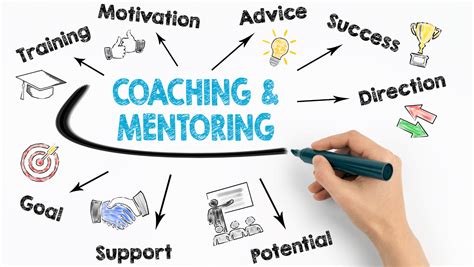to quality for leads coaches must ,leadership coaching for managers,to quality for leads coaches must, Leaders who embody coaching skills can perform better in their careers. They demonstrate their leadership skills through their top-tier communication abilities, which create strong bonds with. $29.00

In the rapidly evolving business environment, leadership is more than just directing teams and making decisions. It is about guiding others toward personal and professional growth, building high-performing teams, and adapting strategies that lead to success. One way to achieve this is through leadership coaching. Coaches, particularly those specializing in leadership, play a crucial role in transforming individuals into effective leaders. But how do coaches qualify for leads? What makes them the right choice for those seeking leadership development? The answer lies in the application of four key pillars: learn, execute, adapt, and develop.
Leaders Are Great Coaches
Before we dive into the core principles of leadership coaching and the strategies used to qualify for leads, let’s first establish the connection between leadership and coaching. Leaders are inherently great coaches. Why? Because effective leadership is not just about managing resources; it’s about inspiring, guiding, and empowering others to reach their potential.
In the context of leadership coaching, a leader-coach does more than give instructions—they work side-by-side with individuals, helping them realize their strengths and weaknesses. Great leaders are empathetic, patient, and keen listeners. They provide guidance not through authoritarian approaches but by fostering a growth-oriented mindset, offering opportunities for their team members to learn from experience, and encouraging them to step outside their comfort zones.
For coaching to be effective, the leader must recognize that coaching is a continuous process, one that requires ongoing self-assessment, reflection, and learning. A great leadership coach understands that the foundation of any successful coaching relationship is trust, respect, and open communication. With these qualities, a leader can instill in their teams the confidence and motivation to excel, which is exactly why leadership coaching plays a crucial role in any leadership development program.
Coaching Lead Generation
Effective coaching is not just about developing skills within a team, but also about building and maintaining relationships with future clients, or "leads," who may benefit from the coach’s expertise. In the world of leadership coaching, lead generation is the process of attracting potential clients who are seeking leadership development. However, generating leads as a coach is not the same as it would be for a traditional business. Instead of simply pushing products or services, leadership coaches must showcase their value by demonstrating expertise and building trust.
The key to successful coaching lead generation is positioning oneself as an expert in the field, showing that one has the ability to transform teams, organizations, and individuals. To do this, coaches must build their personal brand by consistently producing quality content that educates and inspires others. Blogs, webinars, podcasts, and speaking engagements all serve as excellent platforms for demonstrating leadership insight and establishing credibility.
Additionally, effective lead generation requires coaches to understand their target audience—whether they are corporate executives, mid-level managers, or individuals looking to improve their leadership skills. Once the target audience is identified, coaches must develop a clear value proposition that aligns with the challenges and needs of their leads. By demonstrating how coaching will lead to tangible outcomes (e.g., enhanced productivity, improved decision-making, stronger interpersonal relationships), coaches can attract and convert leads into loyal clients.
Core Principles of Leadership Coaching
To qualify for leads, leadership coaches must understand and apply core principles that guide their coaching practice. These principles form the foundation upon which successful leadership coaching is built. They are:
# 1. Self-Awareness
Leadership begins with self-awareness. A coach must first reflect on their own leadership practices, identify strengths and weaknesses, and continuously strive for self-improvement. Through self-awareness, coaches can model the behaviors they seek to cultivate in their clients.
# 2. Empathy
Empathy allows leaders to build strong relationships with their team members. As a coach, empathy helps establish trust and rapport with the individual being coached, making it easier for them to open up about their challenges and areas of improvement. Empathetic leadership coaching fosters a deeper connection between the coach and the coachee, creating a safe space for growth.
# 3. Growth Mindset
Leadership coaches must have a growth mindset, which means they believe that skills, intelligence, and capabilities can be developed through dedication and hard work. This mindset not only drives the coach’s own professional development but also instills a similar mindset in their clients. Leadership is not about perfection but about continuous growth, and a growth mindset helps clients overcome challenges and embrace new opportunities.
# 4. Action-Oriented Approach
Coaching is not just about discussions and theories; it’s about execution. Coaches need to guide their clients toward taking practical steps that lead to measurable results. An action-oriented approach ensures that leadership coaching is not a passive process but one that actively drives change and improvement.

to quality for leads coaches must $22K+
to quality for leads coaches must - leadership coaching for managers